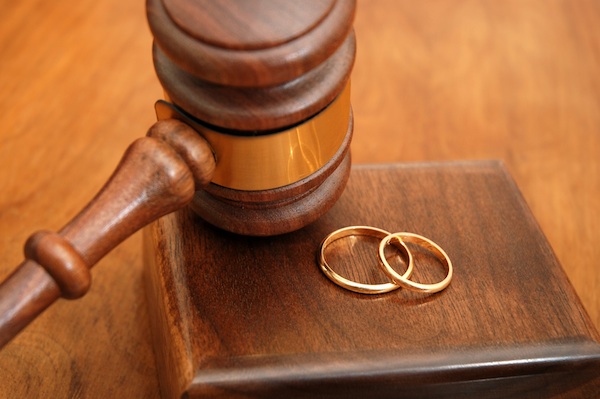So let us return, you and I, warily and wearily, to the topic of gay marriage. Gingerly, in fact, as though with a hangover after an ill-tempered, bickering party. And, in the cold and Nurofenned light of day, let us find our common ground, and think about where it leads.
I’m still for it and I’m still of the view that churches shouldn’t have to do it if they don’t want to. I’m for both of these things for the same reason, which is a belief that one person’s conviction, however firmly held, shouldn’t mess with another’s liberty and happiness unless it absolutely has to. In all honesty, though, I don’t consider them equal concerns. The right of gay people to marry, I reckon, is pretty fundamental and human. The right of people to keep practices they find icky out of their place of worship, meanwhile, has a morality I find more -slippery.
Indeed, I increasingly get the impression that religious opponents of gay marriage are actually secretly delighted at the notion that the Peter Tatchells of the world might seek to force gay marriages in churches, because it allows them to oppose something they would have opposed anyway out of sheer and shrill distaste, but to tell themselves their views are based on religious conscience.
Still, mine is not to make windows into men’s souls, as a lady once said. Faith is faith, and there’s something not quite right about assuming you can change it from parliament. Even though that lady’s father did just that.
Which is the rub, really, and it’s got me thinking. Refuse to recognise the equivalence of same and different sex unions in the rituals of your own private ontology which other people reckon is all make-believe anyway? Fine. Who’d have a problem with that? Perhaps I’ll have my doubts about you as a human being, but what you choose to do behind closed temple doors with other consenting adults shouldn’t be any of my -business.
Unfortunately, it is my business. Because, when you marry in a church, mosque, synagogue or similar, you are not only married in the eyes of God. You are also married in the eyes of the law. Even for those outside your chosen Weltanschauung, is my point, your status has changed. Thus, you need to play by the wider world’s rules. This is why, I’m afraid to say, when the Tatchells eventually pick this fight they’re going to win.
In most of Europe, though, they wouldn’t. This is because in France, Germany, Italy, Belgium and pretty much everywhere else, a religious marriage only marries you in the eyes of God. If you want to be married in the eyes of everybody else, you need to toddle off to the registry office and do it again. (Or before. Or, increasingly, instead.) For Britain, surely, this is the answer to our gay marriage problem. Our places of worship have a civil function because we have a state religion and we’re accustomed to that being how it works. Strip it, and banning gay marriage in your church becomes like banning football in a golf club.
Of course, many religionists might be uncomfortable with their place of worship becoming a mere place of hobbyism. When your priest, imam, vicar or rabbi has civic status, taking it away might feel like marginalisation. But, hey, it works everywhere else. Indeed, even if this sort of thing is taken to its logical conclusion, where’s the big downside? Antidisestablishmentarianism remains a Scrabble holy grail, but is fast losing its rationale as a concept. The Lords Spiritual are surely on the way out anyway. See also: women bishops. There, also, the C of E seems to be tearing itself apart because of an irreconcilable clash between mainstream British values and church ones. Sever the link.
Getting the church out of the state can wait, though. In the short term, just get the state out of churches. And mosques, and synagogues and everywhere else. While your vicar, priest or whatever functions as a civic registrar, it’s not surprising that a court — especially a horrid, godless European court — might tell them to act like one. But no court is going to legislate on something that is merely a conversation with the Almighty. Surely.
When you’re young, and you fancy a girl (or a boy; not relevant; new subject) often you fancy the idea of them more than the reality. You dream, you fantasise, you feel certain you know what is going to be. Then you get to know them and, often, they’re simply somebody else.
So it is with politics, with Ukip. I’m not going to get preachy about Ukip. In all honesty, I don’t really know enough about them to do so. But it strikes me, again and again, that nobody does. There’s Nigel Farage, sure. But below him? Maybe they aren’t ‘fruitcakes, loonies and closet racists’ as David Cameron claimed. But who are they?
In recent years we’ve had independents, Respect, Veritas, the BNP, maybe others I’ve forgotten about. On the fringes of British politics, the same thing keeps happening. During the last election, it sort of happened with the Liberal Democrats, too. A new force rears up, briefly looking like it is going to change everything. Then, in the spotlight, it becomes a collection of actual people. Such is the nature of fringe politics — some of them are frankly odd. Maybe most of them. So it rears down again. At the next election, Ukip plans to field 650 candidates. Who the hell are they, then?







Comments